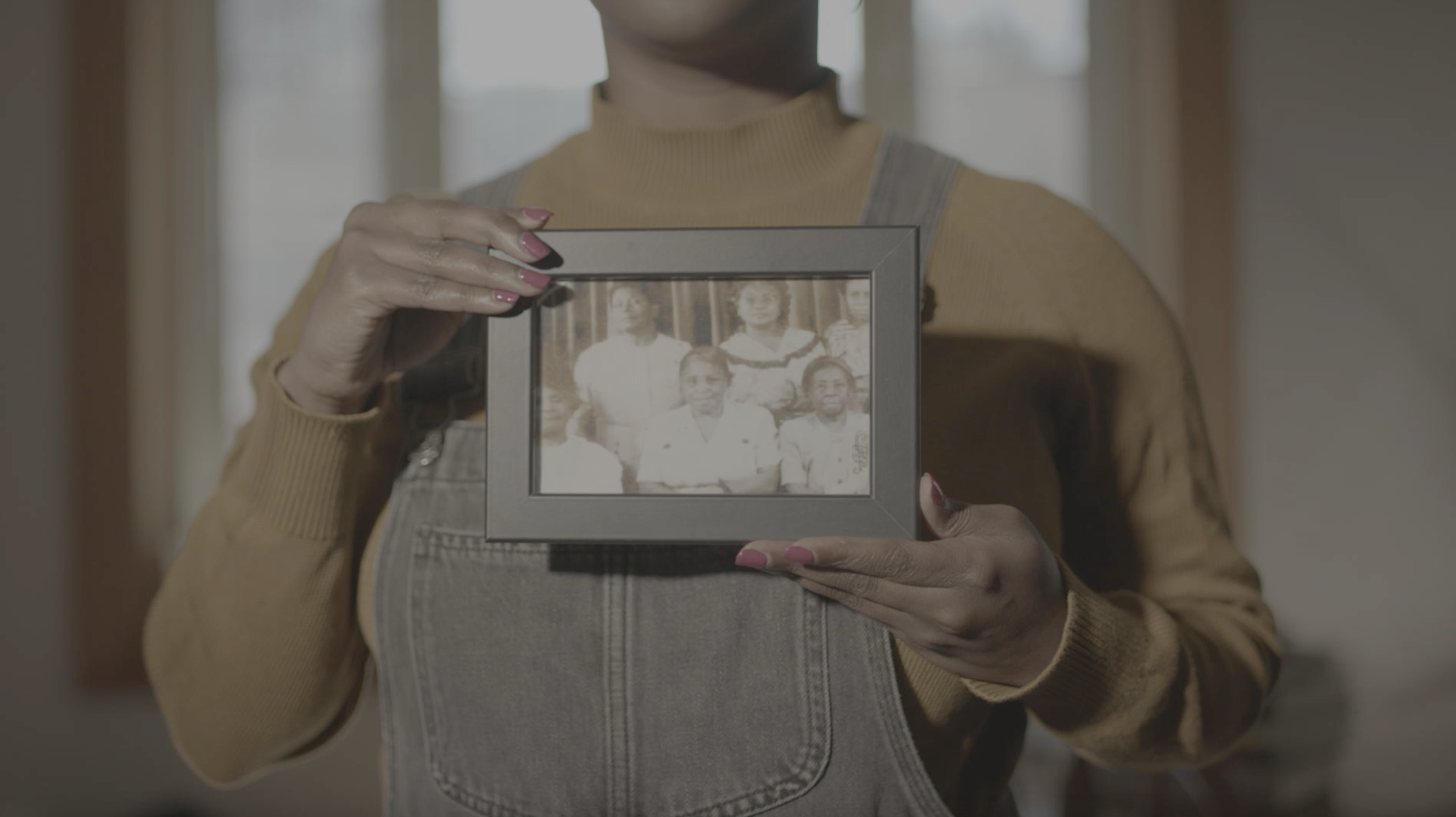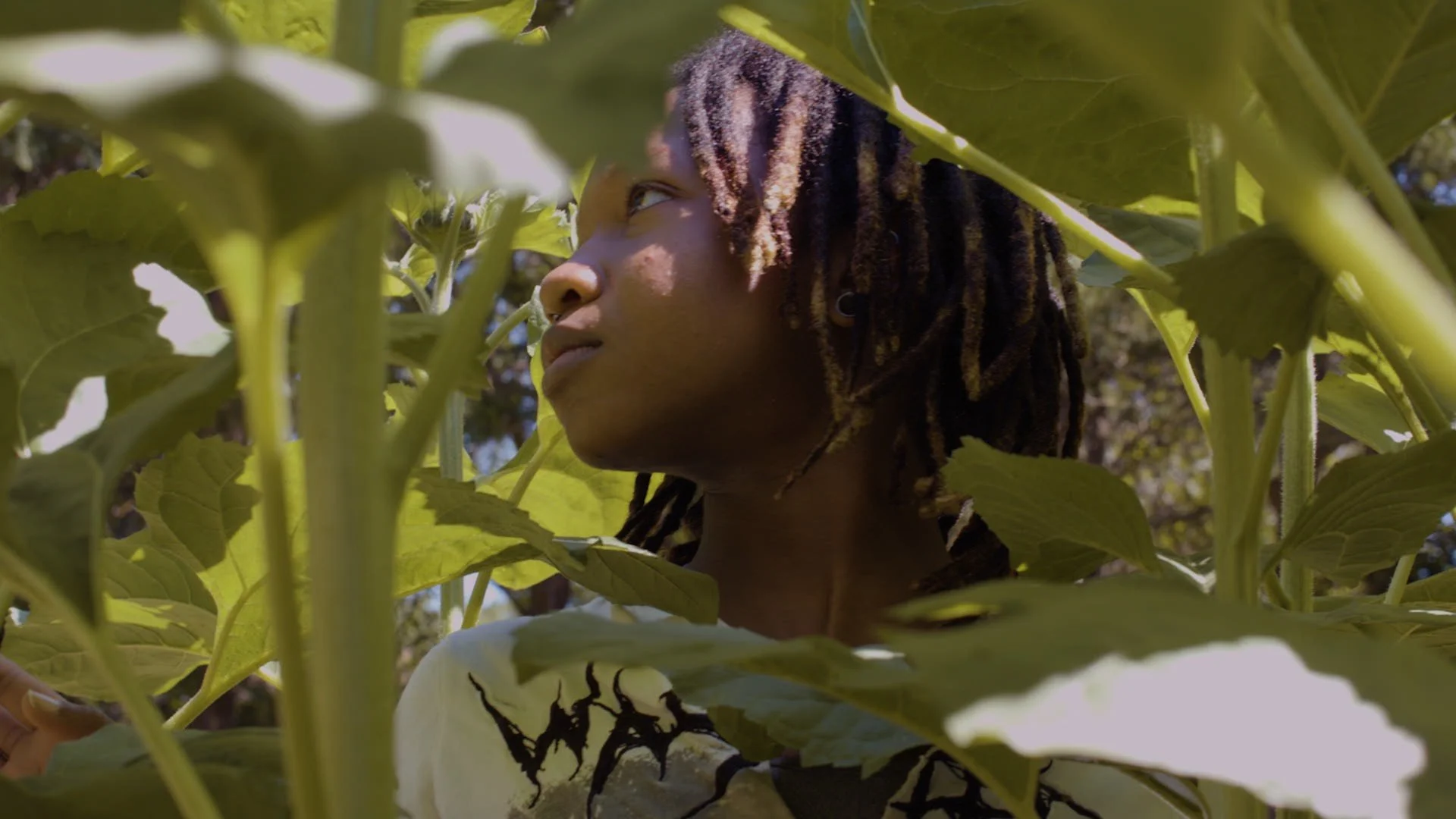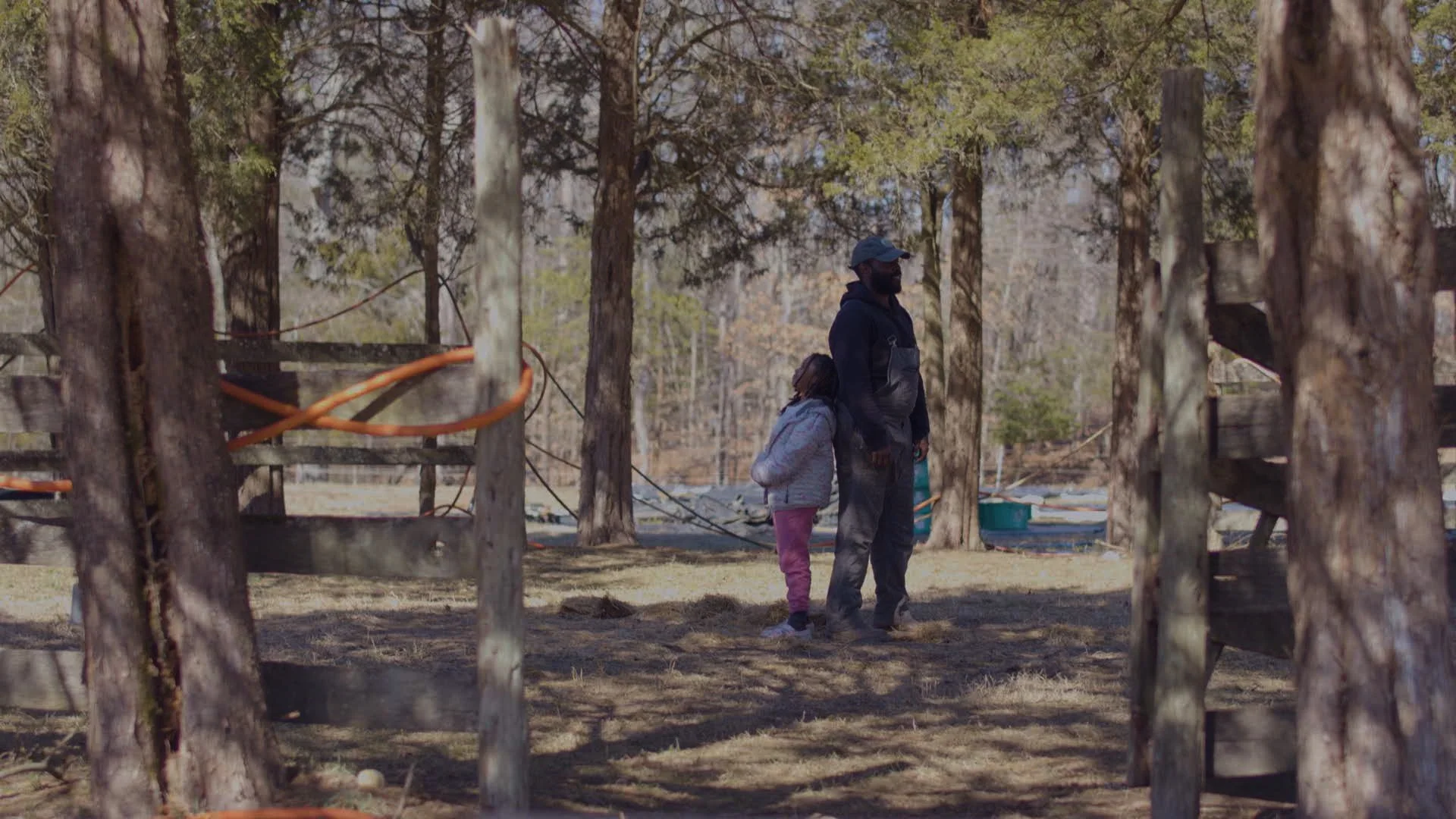Curating an Interwoven Practice as a Land Based Storyteller
By Jamaica Kalika
When I started my second year living fulltime in Washington, DC, I made it a personal goal to seek out farming and gardening opportunities to understand native ecologies, regional food systems, and most importantly, to build meaningful relationships. My personal journey to reconnect with the land started with a few propagated houseplants and a small container garden on a 5 by 10 balcony in San Francisco during the pandemic. It deepened at the HALO GREEN Garden, an urban garden that became one of the most enriching and invaluable communities I found after moving across the country. Sometime after, an unexpected entry point led me to Our Space World, where I began working with a brigade to provide hands-on farm support to Black-owned farms in PG County, Maryland. That experience shifted the trajectory of my life.
As a home cook and chef, I’ve been driven by a lifelong passion for food and nourishment. My creative work lives at the intersection of filmmaking, farming, and food preparation. Food and film are fundamental elements of culture, essential for passing down stories and values across generations. My artistry aspires to cultivate spaces of connection where nourishment and storytelling coexist in service to cultural preservation.
Black identity, history, and futures are under explicit attack. Croom Corridor was born from the urgency of that moment. It offers a response rooted in resistance, reconnection, and regeneration. Through food and land, we find frameworks for care. Stories about food sovereignty and land justice are essential to both cultural survival and collective liberation. This story is about a transformation of systems and relationships. Black agrarian spaces challenge exploitative economic models and nurture cooperative ecosystems.
This film is a culmination of my journey as a land steward. It’s a reflection of the people, places, and elements who’ve taught me, worked alongside me, and grown with me.
Making a documentary about Black farmers and land stewards felt like a distant possibility. I had spent the previous year diving headfirst into narrative filmmaking, working on camera teams and training to become the best cinematographer I could be. But my background in journalism and passion for image making kept pushing me towards documentary work. I dreamed of making a film that combined my passion for food and farming with my experience in journalism and cinema.
The RNE fellowship gave me the opportunity and structure to make that dream a present reality. A chance to step into a powerful and sacred role as my directorial debut.
It was essential to me that this documentary be created with intention in every aspect. Every part of the process needed to be rooted in the place and people it represented. Our crew was guided by Octavia Butler’s journal entries and our production manifesto, a process inspired by the work of Jomo Fray and Raven Jackson’s All Dirt Roads Taste of Salt.
Our filmmaking process was textured and tactile. We wanted viewers and crew to feel what land, labor, and care look like in these spaces. This was much more than making a pretty final product, but being of service, creating an archive, and acknowledging the divinity of being in this place at this time.
Since beginning this fellowship and working on this film, my life has shifted in beautiful, unexpected ways. I’m now pursuing a career as a full-time freelance cinematographer and personal chef. I’m deepening my study and practice through immersive programs like Soul Fire Farm Farm to Table, Southern Foodways Alliance Film Prototype Residency, the Calabash Network and Common Good City Farm’s regenerative agriculture course.
With this project, it feels like everything is coming full circle, overlapping, coming back around, and spiraling deeper into the work I'm meant to make.
To follow and share in my journey with this film and beyond, connect with me through Instagram, LinkedIn, etc @jamaicakalika on all platforms.





